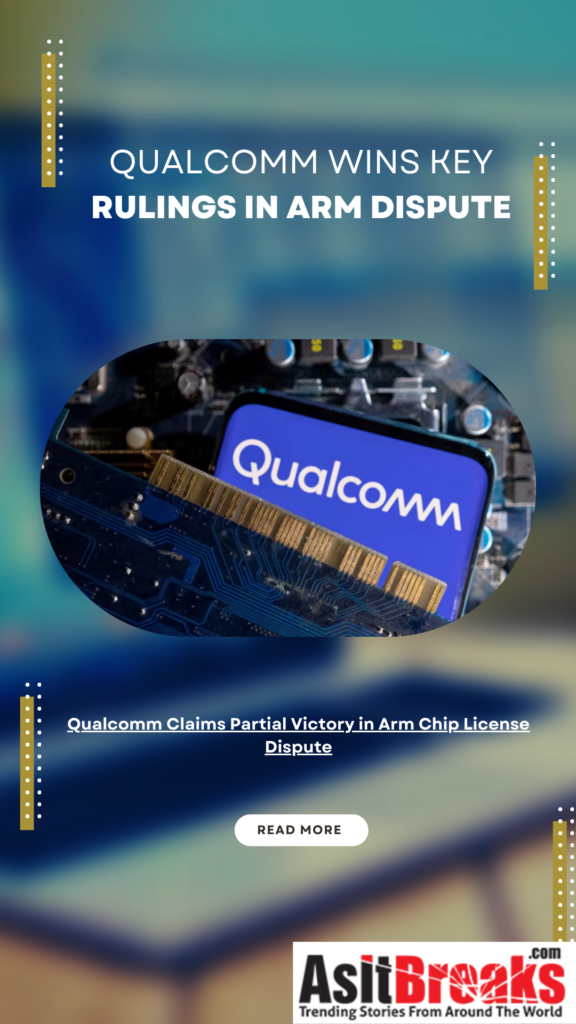WILMINGTON, Del. (AP) — Qualcomm declared victory Friday after a U.S. jury largely ruled in its favor in a contentious dispute with British chip designer Arm over technology licensing rights, though Arm vowed to seek a retrial due to an unresolved issue.
The Delaware federal court jury found in Qualcomm’s favor on two of three key questions regarding the company’s 2021 acquisition of chip startup Nuvia for $1.4 billion. However, jurors deadlocked on whether Nuvia had breached its own license agreement with Arm.
“The jury vindicated Qualcomm’s right to innovate,” Qualcomm said in a statement, noting the verdict confirmed its products were protected under existing contracts with Arm.
Arm, which filed the lawsuit in 2022 against one of its largest customers, said it would pursue a retrial based on the jury’s inability to reach consensus on all claims. “From the outset, our top priority has been to protect Arm’s IP and the unparalleled ecosystem we have built with our valued partners over more than 30 years,” the company stated.
The case exposed tensions between two semiconductor industry giants over licensing fees and intellectual property rights. Arm accused Qualcomm of using Nuvia’s licensed technology without proper authorization, while Qualcomm argued its existing Arm license covered the disputed technology.
Both companies’ CEOs testified during the five-day trial. Evidence presented showed Qualcomm had calculated potential savings of hundreds of millions in annual license fees through the Nuvia acquisition, which would help reduce its reliance on Arm’s premade designs for PC market expansion.
The judge ordered both parties to work with a mediator following the partial verdict. Industry analysts suggest the ruling largely favors Qualcomm.
“It is clear that Qualcomm came out on top,” said Prakash Sangam, founder of tech consultancy Tantra Analyst, who attended the trial. “Two of the three questions were a unanimous decision in their favor, and the judge made it clear that she was not keen on a quick retrial.”
The dispute had threatened to disrupt the release of new AI-focused consumer devices containing Qualcomm chips, including PCs from Microsoft and Dell and Samsung smartphones. Arm had sought to block the allegedly infringing products.
The case highlighted the complex relationship between Arm, which provides fundamental chip architecture, and Qualcomm, which builds upon that architecture for its products. Internal documents revealed during the trial also showed discussions between Arm CEO Rene Haas and SoftBank CEO Masayoshi Son about boosting royalty revenues following SoftBank’s 2016 acquisition of Arm.


